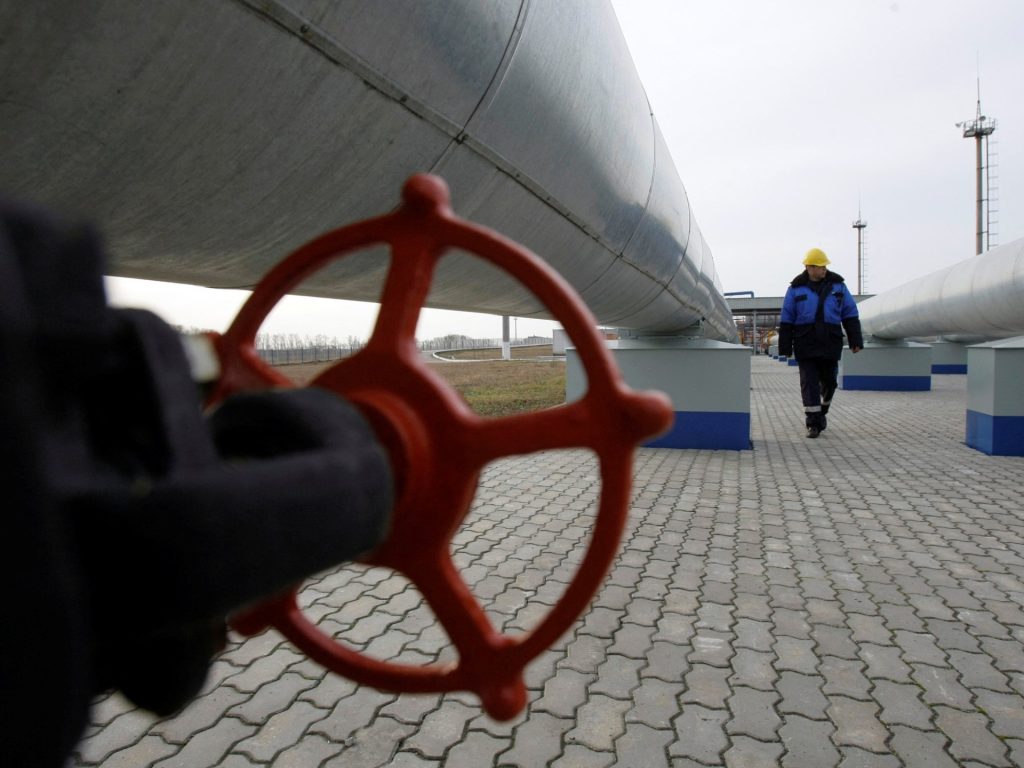Ukraine -based fuel exports to several European countries have stopped after kyiv refused to renew a transit agreement that expired on Wednesday.
Ukraine had warned that it would renew the five-year public shipping agreement amid the ongoing military clash with Russia.
“We stopped the transit of Russian gas. This is a historic event. Russia is losing its markets, it will suffer financial losses. Europe has already made the decision to abandon Russian gas,” Ukraine’s Energy Minister German Galushchenko said in a statement.
Russia’s powerhouse, Gazprom, said fuel exports to Europe had been halted since 8 a. m. Moscow time (05:00 GMT) as the transit agreement had expired.
“Due to the Ukrainian party’s repeated and obviously expressed refusal to renew those agreements, Gazprom disadvantaged the technical and legal ability to supply fuel for transit through the territory of Ukraine from January 1, 2025,” Gazprom said in a press release in a press release. The telegram messaging app.
Ukraine pumps Russian herbs to several European countries, adding Slovakia, Moldova and Hungary.
Brussels has played down the effect that the loss of Russian fuel materials will have on the 27-member bloc.
“The commission has been working for more than a year in particular in preparation for a situation without Russian fuel being transmitted by Ukraine,” he told AFP news firm on Tuesday.
Slovakian Prime Minister Robert Fico blasted the move on Wednesday, warning it would be Europe that pays the price.
“Stop the fuel traffic through Ukraine will have a drastic effect on all of us, but not in the Russian Federation,” said Fico in a video message on Facebook.
Fico, who has been critical of the European Union’s support to Kyiv, last week travelled to Moscow to meet Putin, anticipating a stoppage of the gas flow.
In a separate dispute over payments, Gazprom also declared that he would prevent fuel from morleva, forcing Chisinau to introduce an emergency state.
The Moldovan government said the pro-Russian region in Bussia in Transnetria is in a “difficult situation” after fuel materials were reduced on Wednesday.
Government spokesman Daniel Voda said that “Russian blackmail in the Transregist region will have to stop. “
Local media reported heating interruptions in the area, while an energy supplier suggested to citizens to “look hotly”, they meet in a room, seal doors and windows with curtains and blankets, and avoid homemade heating equipment.
The rest of Moldova has been spared blackouts for now, able to secure power imports from neighbouring Romania.
It was already cut off from direct Russian gas, but still relied on a major Russian-supplied power plant in Transnistria for its electricity.
The closure of the oldest fuel road in Russia to Europe ends a decade of time caused through the seizure of Crimea through Russia in 2014.
“It ended what once was Russia’s domination in the EU energy market. He used this domination in the beyond an economically destructive effect when he required higher costs or threatened to deactivate the taps in the middle of the winter,” said Jonah Hull al Jazeera in kyiv.
“And, of course, this has reached a value for the European Union itself, diversifying the offering to more beloved fuel products based on liquid herbal. In turn, damage the economic production of the block and cause genuine considerations about its long -term global competitiveness. »
Ukrainian President Volodymyr Zelenskyy said the transits will cause Moscow to waste “one of the most successful and geographically available markets” for its gas. In an article on X, he said Russia “covered up the cynical blackmail of partners. “
The EU has intensified efforts to reduce its dependence on Russian power after the outbreak of the army clash in Ukraine in 2022 through sources of choice.
As of Dec. 1, the EU earned less than 14 billion cubic meters (BCM) of fuel from Russia-Ukraine, down from 65 bcm according to the year when the last five-year contract began in 2020. The European Commission has stated that the volume can be completely replaced through imports of liquefied and non-Russian herbal fuel.
Russia still exports to feed the Turkstream pipe in the Black Sea bed.
Hungary, which, as Slovakia, has remained friendly with Moscow, receives maximum of its russian fuel imports through the Black Sea pipe. As a result, Budapest will remain largely not affected by the decision of Ukraine.

